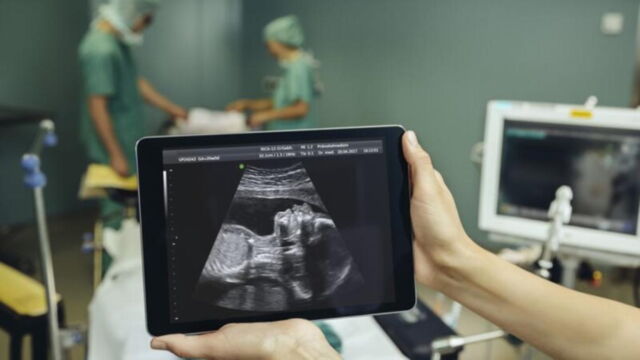81-year-old Brazilian woman dies after doctors remove a 56-year-old 'stone baby' from her body

They thought this 81-year-old woman had a urinary infection, but doctors found something worrying inside her after an unexpected operation.
Daniela Almeida Vera came from a big family, with seven children of her own and 40 grandchildren. An indigenous woman, Vera didn't like going to the doctor, even when she was in a lot of pain. One day, however, she was rushed to the hospital after she was in pain from what they thought was a general infection.
Discover our latest podcast
Here's what really caused her pain and eventual death.
She refused to go to the doctor
The 81-year-old woman fought through her pain for a while, and refused to get medical help. Her only son, Vanderlei Avalo Almeida, testified according to the Daily Mail:
More under this adMore under this adShe didn't want to go to the doctors because she was worried she had a tumour. She would just take medicine so the pain went away.
Her 21-year-old daughter Rosely Almeida expressed similar sentiments:
She was elderly and we are indigenous people. She didn't like going to the doctor and she was afraid of the equipment used to carry out tests.More under this adMore under this ad
It has been reported that previously she went to the hospital for a urinary infection. This time around, doctors suspected that she may have cancer after she complained of stomach aches. However that changed once they took a scan.
No one expected what the doctors found during their examinations. Indeed, they discovered a 'stone baby' over 50 years old, which she had been carrying in her body since her last pregnancy. This is as rare a medical rarity as a 'parasitic fetus'.
More under this adMore under this adSadly, Daniela died after doctors removed the fossilized fetus from her body.
The 'stone child phenomenon'
The 'stone child phenomenon' is a gynaecological rarity. According to the HebammaMama website, three conditions must be met for a fossilized fetus or lithopaedion, as it is known in technical terms, to develop:
- In the vast majority of cases, this is an abdominal pregnancy. This means that the fetus does not grow in the uterus as it should, but somewhere in the abdominal cavity.
- This must be a fetus between the 14th and 40th week of pregnancy. If the fetus dies before this, it can usually be completely absorbed by the mother's body.
- The mother must survive these first two conditions.
If the mother survives, the body recognizes the fetus as a foreign body and 'mummifies' it to protect the mother from infection.
More under this adMore under this adIt is all the more miraculous that Daniela Almeida Vera survived her stone baby for over 50 years, as many women suffer pain for many years or even die, depending on the position and location of the calcified fetus.
Only 290 cases worldwide
As Focus reported, the woman carried the fetus in her body for around 56 years. Her daughter suspects an even longer period.
More under this adMore under this adTo date, only around 290 such cases are known worldwide. These occur exclusively in regions with very poor medical care. Since the year 2000, such reports have mainly come from China, India, and countries in Africa and South America.
This article has been translated from Gentside DE.
Read more:
Woman carried a dead foetus in her womb for 46 years without knowing it
Woman goes to hospital for painful periods, doctors discover a foetus growing in her liver
Dad recalls hair-raising moment he saw on baby monitor: 'I saw an arm reaching into the cot'
Sources used:
Daily Mail: 'Pregnant' pensioner, 81, dies a day after surgery to remove ultra-rare 'stone baby' foetus she had been carrying inside her for 50 years in Brazil
More under this adMore under this adFocus: 81-year-old woman dies after removal of a "stone baby"
HebammaMama: The stone child phenomenon